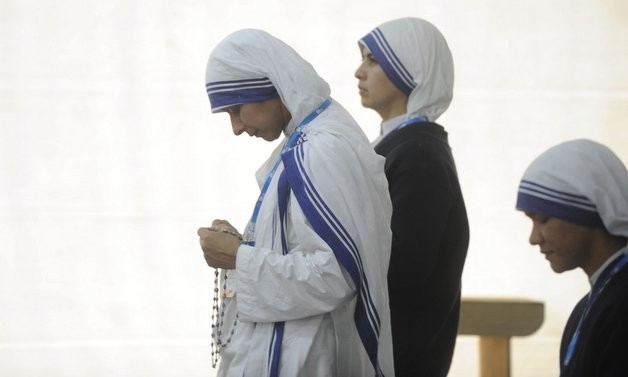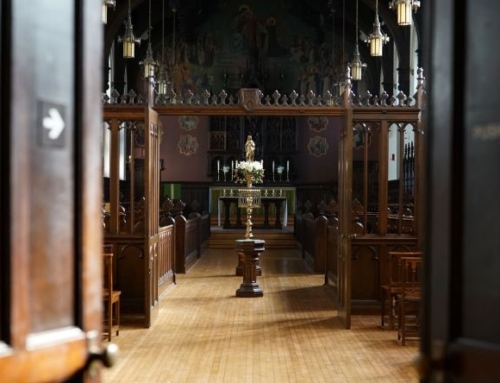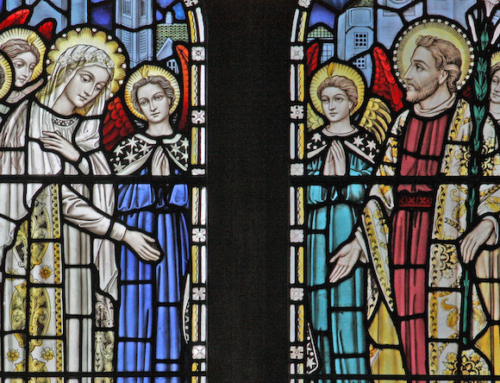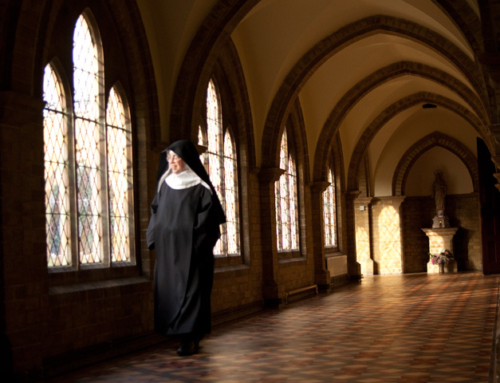This is the fifth post in a five-part series marking the opening of the Year of Consecrated Life.
In my second semester here at the House of Studies, I had the opportunity to work with the Missionaries of Charity at their house in Anacostia, just outside DC.
On one of my visits, there were various families from the neighborhood gathered for an Easter party. I went to the kitchen and asked one of the sisters what I could do to help. She looked at me, standing there in my Dominican habit, and said, “You’re a Dominican. Preach to them!”
Another day, I came to their soup kitchen. How was I to help? The sisters asked me to pray the rosary with the homeless men gathered in the hall. Were they Catholic? No. Some of them weren’t even Christians. The sisters didn’t find this relevant. “Go give them rosaries and pray the rosary with them,” I was told. So I did. We prayed the rosary together, me and twenty non-Catholics.
At the end of the year, as a kind of review (according to the protocol of our training for priestly ministry), I asked the superior of their house if there were any concerns she had about me as a candidate for the priesthood. She seemed puzzled. I tried to explain. “So, since I’m studying for the priesthood, my ministry supervisor would like to know if you have any concerns about me as a potential future priest.” She didn’t need much time to think up an answer. “You should be ordained as soon as possible!” she replied. Her logic was clear: We need priests. You’re an unmarried Catholic man. Let’s get you ordained!
Each of these memories sticks in my head as typifying the Missionaries’ approach to ministry. What is that approach? Simply put, they’re for real. They take loving Jesus really seriously. They search the globe looking for those places that stand out like sores on a body, and when they find them, they go there and wash them. And this is done with the kind of no-nonsense attitude which makes it possible to serve in the most downtrodden of places. While most of us spend our time trying to think up creative ways to love our neighbor, the MC’s just move in and do it.
Because of this characteristic, the Missionaries of Charity help keep all of us on target. Whatever our walk in life, they help us to remember that charity really is what it’s all about, and that we can love Jesus by loving our neighbor.
All religious are called to wake up the world, to remind the world of the important things in life. Carthusians do this by living lives of contemplation, reminding us of our supernatural calling to intimate union with God. My Dominican brothers and I aspire to do this by preaching the Gospel to the world.
The Missionaries of Charity do the same thing in their particular way. But because they have chosen the most tangible of ways to love their neighbor, they serve as a particularly tangible sign. Seeing them, I am reminded of what Christ’s love for me looks like. Seeing them, I am reminded that my own life is supposed to be an expression of love, and that that love has to be for real, not just an idea. Seeing them, I am reminded that a life of love entails big-time sacrifices, but that it also brings joy.
Whatever it is that we do, the Missionaries of Charity remind us: it is nothing if it has not love.
✠
Image: Tânia Rego, Missionaries of Charity during the World Youth Day (WYD) in Rio







